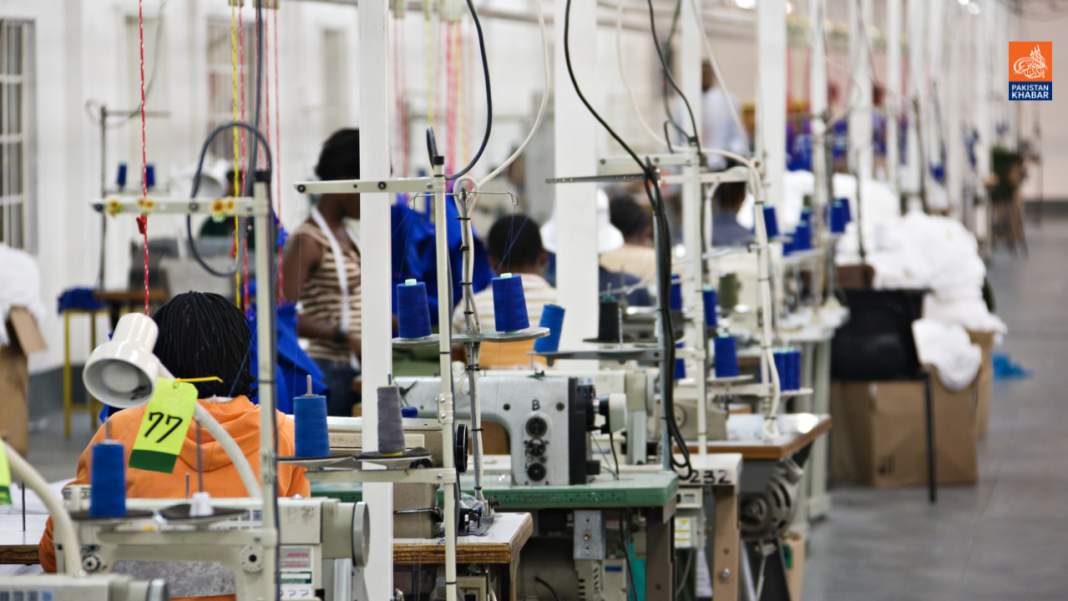Pakistan’s textile and clothing industry is struggling to stay competitive with its regional rivals due to the stringent taxation measures introduced this fiscal year, as reported by WealthPK.
Data from the Pakistan Bureau of Statistics (PBS) indicates that textile and clothing exports dropped by 3.09% in July 2024. Once the backbone of Pakistan’s export economy, the sector has been significantly affected by the new tax policies and escalating energy costs.
Despite an installed capacity of $25 billion, textile and clothing exports have remained stagnant over the past two years. Exporters blame this on structural issues within the industry. In absolute terms, exports decreased to $1.27 billion in July, down from $1.31 billion in the same month last year, marking a 10.13% month-on-month decline.
This downturn continues a trend of negative growth, following a 0.93% decrease in June. Although the sector experienced a substantial rebound in May with double-digit growth, it continues to face challenges primarily due to unfavorable policies.
The PBS data reveals mixed outcomes across various textile sub-sectors. For instance, readymade garment exports increased by 7.57% in value and 8.47% in quantity, whereas knitwear exports declined by 1.88% in value and 6.37% in quantity.
Bedwear exports saw a 1.20% decrease in value but a 4.07% increase in quantity. Towel exports dropped by 3.67% in value and 2% in quantity, while cotton cloth exports fell by 0.56% in value and 4.72% in quantity.
Yarn exports saw a sharp decline of 42.54% in July compared to the same period last year. Conversely, exports of tents, canvas, and tarpaulin increased by 14.22%, and other textile items experienced a significant 53.20% rise, suggesting a shift in the export composition.
On the import side, synthetic fiber imports declined by 33.23%, and synthetic silk yarn imports by 17.68%, while second-hand clothing imports rose by 13.47%. Overall, total exports for July grew by 11.75% to $2.31 billion, up from $2.06 billion in the same month last year.
Oil imports surged by 60% to $1.26 billion, with petroleum products increasing by 39.94% in value and 36.89% in quantity. Crude oil imports, in particular, skyrocketed by 626% in quantity and 687% in value. Meanwhile, mobile phone imports declined by 5.30%, while other mobile apparatus imports increased by 69.45%.
As a key employer, the textile industry requires a balanced approach that promotes competitiveness while ensuring fiscal sustainability. The disparity in export performance across sub-sectors underscores the need for targeted interventions to address the specific challenges facing different segments.
Policymakers must work with industry stakeholders to develop solutions that alleviate the impact of high energy costs and unfavorable taxation, while also encouraging innovation and efficiency within the textile sector




